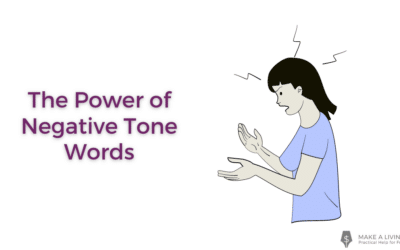Are you suffering from blogger burnout?
Although blogging for clients can help you make a living writing, it can also be time-consuming and sometimes tedious work.
This is true whether you blog for yourself or you write blog posts for freelance clients.
The process of blogging also comes with a few hazards. Some are easy to get over, such as the occasional writer’s block.
But others, like blogger burnout, can be enough to kill your blog or your writing career.
- Ever felt like quitting your blog?
- Or maybe you’ve stumbled across an abandoned blog that hasn’t been updated in months or years?
Chances are pretty good blogger burnout is to blame.
This is certainly not surprising when you consider that over 75% of people have gone through burnout at work.
You know…where you hate your job, roll around on the floor all day, and feel like you can’t muster a single brain cell to write another word.
Sound familiar? That’s blogger burnout.
Whether you write for your own blog, or blog for clients, here are 8 ways to avoid and overcome blogger burnout.
1. Take a break
Blogger burnout can manifest in many different ways.
And it’s very different from writer’s block. When you’re struggling with burnout, you may be able to think of many different things to write about, but simply not have the motivation to do so.
It’s important to occasionally take a break and get away from writing.
Taking breaks is one of the easiest and most effective ways to maintain your mental health and avoid burnout as a blogger.
- Play games. You can even play games like solitaire, which are shown to calm the mind and reduce stress.
- More is not always better. If you’re struggling with blogger burnout, pushing yourself harder won’t help. It will just keep you in that state for much longer.
My advice: Take a break and find something else to do. Refresh your mind so you can come back with new motivation for your work.
2. Remember your ‘WHY’
Remember WHY you started blogging and writing in the first place?
Go ahead. Think about about it. It’s easy to forget when you’re focused on the day-to-day of writing blog posts.
Remembering your WHYcan provide you with a huge dose of motivation and creativity to beat blogger burnout.
So WHY did you start blogging or freelancing?
- Make money writing
- Quit your day job
- Get bylines
- Be your own boss
- Write about a niche-industry you’re interested in
- Help and inspire other people
- Spend more time with family and friends and do things you enjoy
My advice: Anytime you need help getting back on track, take the time to remember your WHY.
Whether you started your blog as a fun hobby or you’re trying to make money, remembering your WHY can help you get back to your roots when blogger burnout starts to simmer.
3. Do something you enjoy
When you write about something you love, you’re a lot less likely to suffer from blogger burnout.
When you’re passionate about your business, like photography power couple Korbin and Whitney Korzan of Mile High Productions, it is easy to create valuable blog content for your readers.
It’s one reason picking your niche is so important.
But you also need to make time for things you enjoy.
Why? It’s a great way to refresh your mind and avoid blogger burnout or resent your work and deadlines.
Keep in mind, this work can still be related to your blogging, but a change of pace isn’t a bad idea to stay refreshed.
For example…
- If you want to create an online course and you enjoy the process, there’s nothing wrong with pressing the “pause” button on blogging to spend your time filming and building your course.
- Or if you’re feeling stressed about blogging, work on marketing, connecting with prospects, or simply thinking about your work instead of actually writing.
Then when you go back to your blogging work after a break, you’ll be more relaxed and focused to get back to writing.
My advice: When you focus on self-care, you’ll be better-equipped mentally to meet your writing deadlines. When we take care of ourselves, we feel happier, less anxious, and less likely to experience blogger burnout.
4. Outsource your weakness
Is there anything you’re not particularly good at?
Or are there any tasks that you find extremely boring to complete?
Automate whatever you can. Outsource the rest either internationally, or post an online job for college students in your local area.
This could include things like:
- Social media
- Email marketing
- Pinterest-scheduling tasks
- Copywriting master Bob Bly recommends outsourcing anything that keeps you from writing (laundry, yard care, etc.)
My advice: Outsourcing areas where you’re weak can help save you time and let you focus on your strengths. When you focus more on your strengths, it helps put you in a positive mindset to avoid blogger burnout.
5. Keep a kudos folder
- A reader raves about your blog post.
- A source gives you a compliment including her in your post.
- You write a blog post that generates a lot of traffic and comments.
Put these types of wins in a kudos folder.
When you’re feeling the heat of blogger burnout, your kudos folder can bring you some much-needed perspective.
Take a break. Open your kudos folder, and remind yourself how far you’ve come and what you’re capable of.
My advice: Every time you have a win, throw it into your kudos folder for later.
6. Be smart with your time
I don’t have to tell you how important time management is for a blogger.
Ineffective time management can lead to burnout and mind mush.
What are some smart ways to manage your time as a freelancer?
- Set specific goals for writing so you know how to prioritize your tasks.
- Create a blogging schedule or editorial calendar.
- Then do your best to follow the plan and write during those times when you’re most productive to meet your deadlines.
These are just a few proven time -management tips for bloggers. But the biggest tip of all…
Avoid multitasking!
Contrary to what many people believe, multitasking actually wastes your time because your mind has to continually switch gears.
As a famous Irish writer once said:
“One thing at a time, and that done well. It’s a very good rule, as many can tell.”
7. Organize
As a blogger, being organized is important to your success. You must be organized in every aspect of your work.
This can be anything, such as:
- Developing an easy-to-use system to organize your ideas
- Creating outlines to plan your content
- Building a stockpile of ideas for blog posts
Being organized is also about creating a tidy environment that can help fuel your productivity.
8. Move more, sit less
As a writer, you spend a lot of hours hunched over your computer screen.
It’s important to remember to take the time to move your body and get your blood pumping every once in a while.
You don’t have to run a marathon or climb a mountain. And you don’t need to crush a whole session at the gym between writing sessions
Instead…
- Get up and walk around for a few minutes.
- Or simply go outside and get some fresh air every hour or so.
Anything you can do to clear your head and refresh your perspective on a regular basis will go a long way toward helping you avoid blogger burnout.
Beat blogger burnout to stay fired up
As a blogger and freelance writer, you’re likely to always have a lot on your plate.
But, trying to accomplish too much can ultimately prove to be unhealthy.
Use the tips to help you maintain a healthy mindset and avoid blogger burnout so you move up and earn more.
How do you prevent blogger burnout? Let’s discuss in the comments below.
Ron Stefanski is an internet entrepreneur and marketing professor at National Louis University, who has a passion for helping people create and market their own online business.












